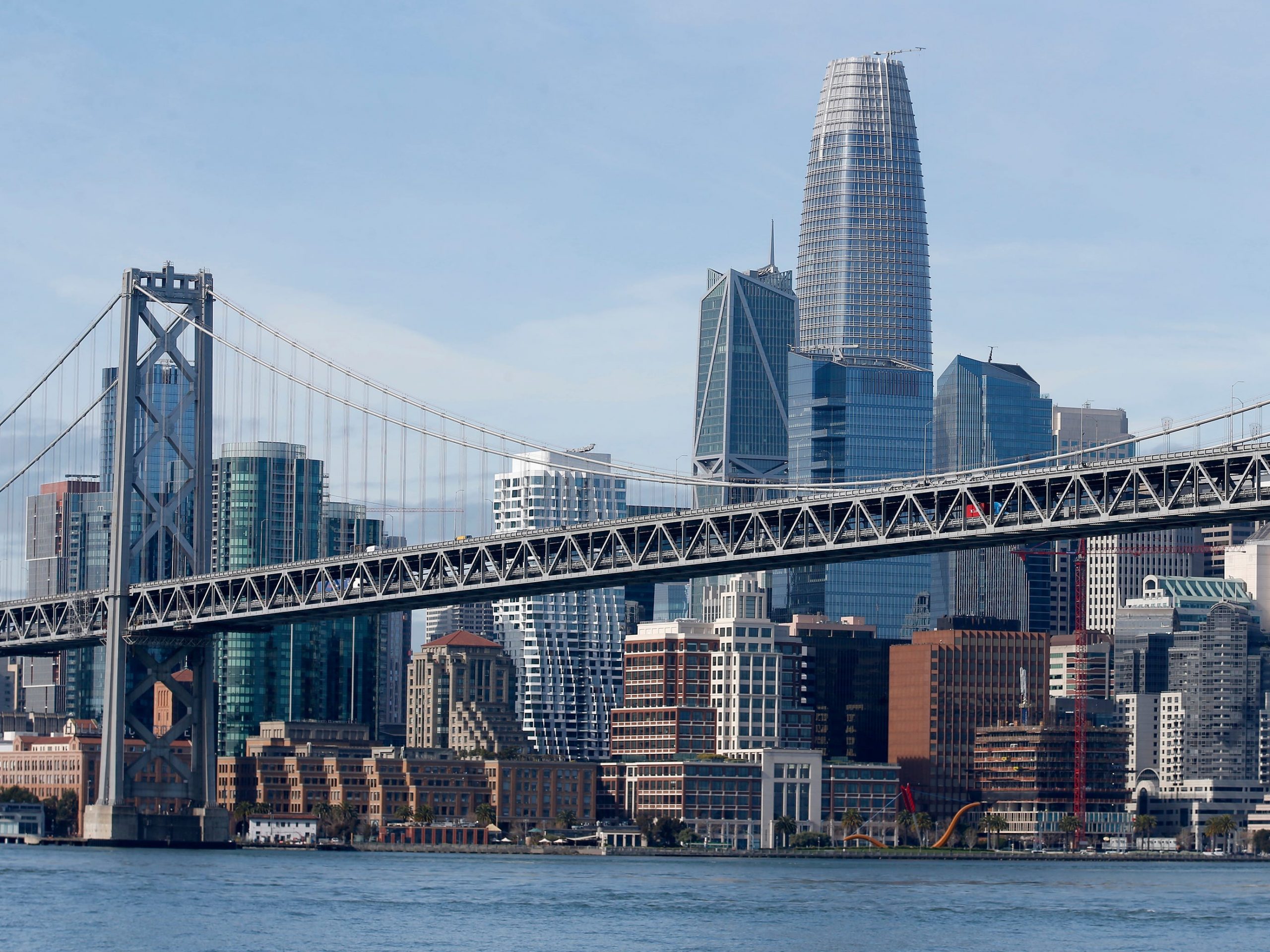
- San Francisco plummeted from the top spot in a ranking of cities with the best economic performance.
- The pandemic has shifted the power away from traditional tech hubs with high costs of living.
- However, a shift toward cheaper cities like Miami and Austin could ultimately lessen their affordability.
- Visit the Business section of Insider for more stories.
San Francisco has plummeted from its spot as the “best performing” city in the US as the coronavirus pandemic wreaks havoc on tech-centric regions.
In the Milken Institute’s annual report, released Wednesday, the Bay Area tech hub fell 23 spots due to a lack of short-term job growth opportunities paired with its notoriously high cost of living.
“The pandemic has an outsized impact on cities where the economic effects of the current recession are exacerbated by high housing costs,” the think tank’s executive director, Kevin Klowden, said in a press release.
The rankings – which take into account job creation, wages, and cost of living – found the highest performing and most economically viable cities have shifted from traditionally dominant coastal locations like California and Massachusetts to Southern and Intermountain West cities.
Smaller cities outside of the traditional technology hubs saw the biggest gains in 2020, according to Milken’s rankings. Palm Bay, Florida and Austin, Texas took the second and third spots on the list. Salt Lake City rose 21 spots to fourth place, and Provo-Orem, Utah – a location that has recently attracted tech giants including Qualtrics, Vivint, and SmartCitizen – supplanted San Francisco as the top performing city this year.
Remote work has made expensive hubs like California less appealing
Since the pandemic started, a work-from-home boom has prompted a mass exodus from cities with high costs of living, as millions of Americans moved away from urban areas to smaller towns and suburbs.
Even executives are looking outside of traditional tech hubs. In January, a poll of 150 c-suite bosses found one in four were looking to move their operations to a cheaper location.
Over 30 major financial institutions, including Goldman Sachs Group have been investigating properties in Florida and tech workers living in the Bay Area have found it less and less beneficial to live in the Bay Area, as companies like Twitter announce it will allow employees to work from home even after pandemic restrictions have been lifted.
While cities outside of traditional tech hubs have benefited from the shift of people and power, the move towards places like Miami and Austin has some advocates worried that the new interest could deteriorate the affordability of these cities as housing costs rise.
The impact of the move toward cheaper cities can already be seen in Miami which fell 38 spots on the list due to rising costs of living. Home prices in the city have risen 29% in the last year as Silicon Valley and Wall Street billionaires flock to Florida.
Recovery is a delicate balance between job opportunities and affordability
The recent volatility of the nation's economy during pandemic has buoyed cities that focus on accessibility and affordability, according to the Milken Institute, which added housing affordability and broadband access as ranking variables for the first time this year.
"As we discovered through our rankings, cities perform best when they pursue innovative strategies that allow high-tech industries to grow while still providing affordable costs of living," Misael Galdamez, a senior policy analyst at the institute, said in the press release. "This alignment provides a foundation for metro areas to become more resilient to economic shocks."
The report also showed how the pandemic has shifted the balance of power between cities as former top performing cities like San Jose, Seattle, and Dallas could no longer be categorized in the top 10 places for job creation, growth, and innovation.
